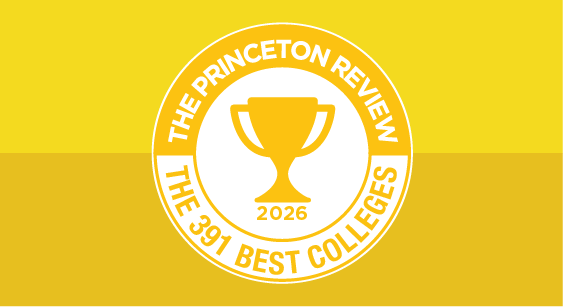American Sign Language
Overview
A theater background couldn’t hurt when you enter into the study of American Sign Language because often you’ll find all eyes on you. But this language is not about theatrics, of course, although it can be rather dramatic to watch. The set of hand motions that make up ASL is as varied and intricate as any spoken language, and the study of ASL is, in many respects, similar to studying French or Spanish or German.
As an American Sign Language major, you’ll not only study the signs themselves but also the accompanying facial expressions and body language that are crucial pieces of this unique communication system. Like any other language, it will take time, patience, and dedication to become fluent. Courses will cover translation and transcription as well as the culture of the deaf—their challenges, communities, and perspectives and interpretations of the world.
Some programs employ deaf instructors for the language courses, giving students an enhanced opportunity to truly communicate with the deaf and ask questions about the experiences of the deaf community. If your program offers a concentration in interpreting, you’ll gain the skills necessary to become a competent, professional interpreter—a job that could take you around the world. Other programs might ask students to combine their studies in ASL with another academic field such as psychology or education. However you choose to put it to use, ASL is a challenging major that offers abundant rewards for both you and those with whom you interact.
- $60,774 Tuition
- 1370 Avg SAT
- 14,237 Enrolled
- 1260 Avg SAT
- 2,003 Enrolled
- $17,016 Tuition
- 920 Avg SAT
- 914 Enrolled
- $22,050 Tuition
- 980 Avg SAT
- 2,640 Enrolled
- $37,760 Tuition
- 1100 Avg SAT
- 717 Enrolled
- $18,504 Tuition
- 960 Avg SAT
- 11,243 Enrolled
View All American Sign Language Schools
SAMPLE CURRICULUM
Beginning American Sign Language
Communication Disorders
Deaf Culture and Community
Internships within the deaf community
Interpretation
Introduction to American Sign Language
Sign Language Studies
Transliteration
HIGH SCHOOl PREPARATION
GRADUATE PROGRAMS & CAREERS
Explore Colleges For You
Connect with our featured colleges to find schools that both match your interests and are looking for students like you.
Top Schools for Game Design
Ready to create the next great app? Launch your gaming career at one of these top 50 programs.
Best 391 Colleges
170,000 students rate everything from their professors to their campus social scene.
Get Started on Athletic Scholarships & Recruiting!
Join athletes who were discovered, recruited & often received scholarships after connecting with NCSA's 42,000 strong network of coaches.



